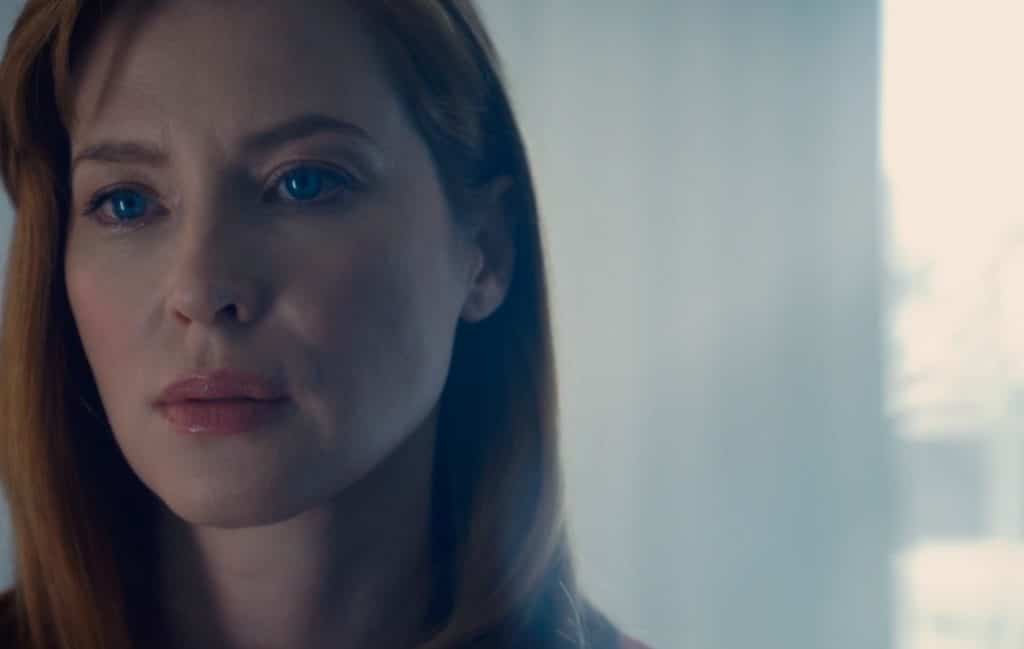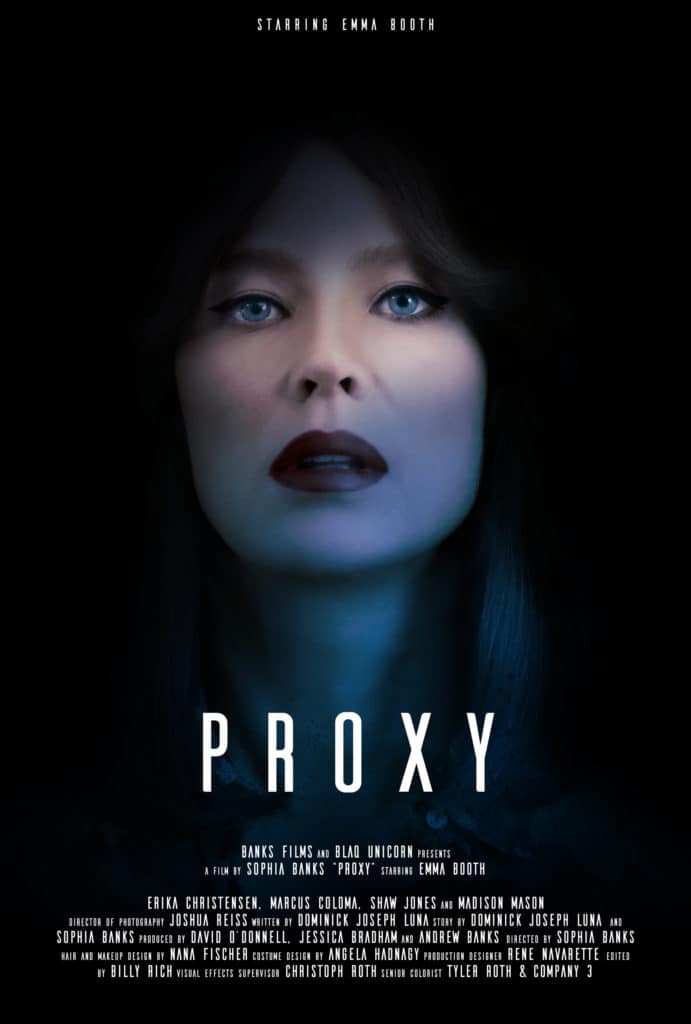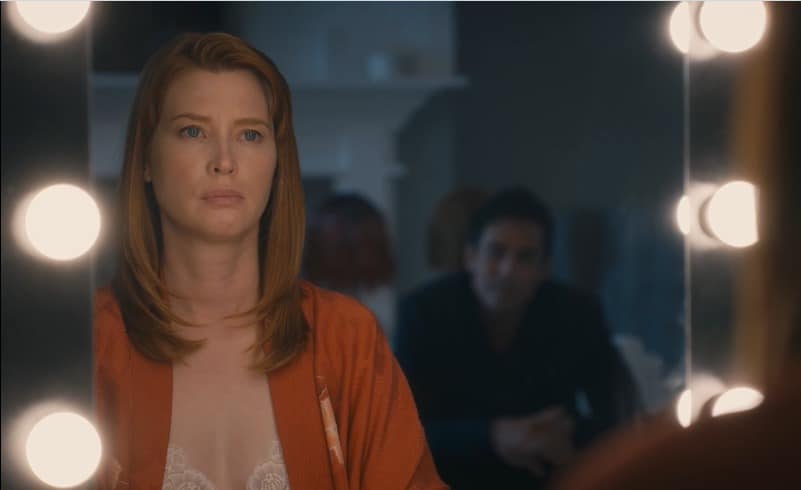
If you could have back a moment in time – to say something differently, or to ask something you never asked – would you? Or, if you could tell someone in the here-and-now what you really think of them, or what they did to you – would you? That is the central premise behind short film Proxy (2020), a subtle, clever and cruel film which teases out ideas and dilemmas which are certainly not a million miles away from our day to day lives now. In this sense, it’s not quite a dystopia; it’s too current and, in its way, too plausible for that.
We are filled in on the fact that ‘Proxies’ are real people trained to assume, for a short time, any necessary personae needed in their clients’ lives. Mothers, ex-partners, current partners – you name it. By 2024, when the film is set, this is a global brand, now offering its services in LA. One such Proxy is known as number #7527 (Emma Booth). When we are introduced to her, she’s sat in a room in disarray, the trappings of assumed personalities strewn all over, and she’s learning lines: Proxies learn scripts for sessions with their clients. #7527’s clients are only known to her by scenarios and first names: ‘Christopher’, Stanley’. She performs this live-action therapy in a consummately-professional manner; day on day, these mini-tragedies unfold with stark regularity. A script learned. A memory faked. A session over.

The Proxy herself almost inevitably skirts close to harm given all these moments of high intensity being played out, but it’s clear that when a certain big job comes along with a special request boundaries get blurred in a potentially dangerous way. Proxy is a film which, despite its novel elements, plays nonetheless with age-old concerns of selfhood and authenticity; if you make your living on ‘bad faith’, then where are you – and is there an undisputed version of you? How do you tell?
The detached demeanour of actor Emma Booth during this film is quite something to behold. When she mouths her lines and prepares herself for sessions with clients, she has little more emotion that the female being in Under The Skin (2013). In-role, she emotes, sure, but in a creepy, stylised way. It’s clear that there’s nothing of her personhood in her job, and it takes an off-script experience to get a glimpse of anything deeper down; this, in itself, causes a crisis. Clever little touches in the film – such as a doctored photo in a frame, changed to present the revised normality the client wishes to believe in – bolsters this feeling of unreality.
In some ways reminiscent of Black Mirror, Proxy shares with that TV series a sense of ever-diminishing distance between reality and fiction. And it’s perfect for a short-film format, offering just enough to its audience to leave a few questions – just as good short films always should. This is a dark, well-constructed glimpse into a disturbing, plausible world.
